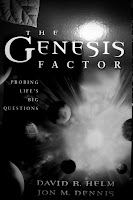This month's fiction novel of choice will be Uglies by Scott Westerfeld. I downloaded the first chapter sample of this one on my Kindle app a few months ago and was instantly gripped. I put off buying it for a while because I knew I had too much else to read, but then a couple of weeks ago I ordered it and as soon as it arrived I knew it was going to the top of the pile. I love distopian fiction, especially when done well and I have good feelings about this one.
This month's other fiction novel of choice will be Ransom by Lois Duncan. That's right, I'm reading four books this month but they're all reasonably small so I think it's a reasonable take. This book in particular I've been wanting to read for years. I've read all the rest of Lois Duncan's books and I even started this one when I was thirteen... on the day we were moving from America back to Australia. I was reading on the front stoop when some friends came by and wanted to play so I left my book by the door and went off. When I came back the book was gone. I couldn't find it at any book stores in Australia and back then you didn't really buy books online. But, now I do. So I did.
This month's second non-fiction book of choice is The Genesis Factor by David R Helm and Jon M Dennis. It's been a topic floating in my mind for ages that I wish I had more reliable information on. I'm hoping that this book will make me feel more informed and help me to better understand my faith.






